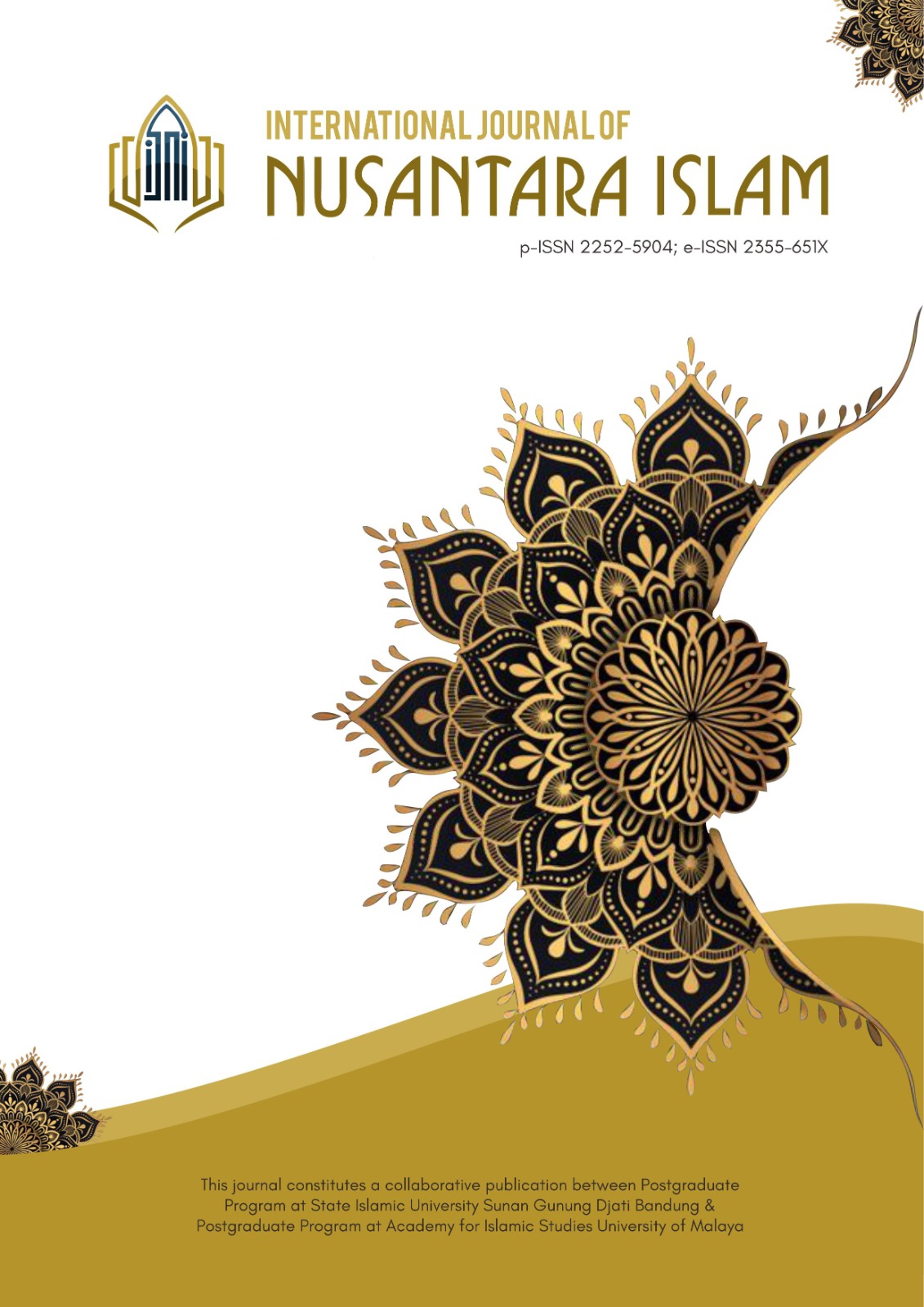Market, Market Mechanism and Price Levels in Islamic Microeconomics Perspective
Main Article Content
Abstract
Article Details
The Authors submitting a manuscript do so on the understanding that if accepted for publication, copyright of the article shall be assigned to International Journal of Nusantara Islam, Sunan Gunung Djati State Islamic University.
The copyright encompasses exclusive rights to reproduce and disseminate articles in all forms and media, including reprints, photographs, microfilm, and similar reproductions, as well as translations. Some or all of the contents of this journal can be stored in databases and transmitted in any form and media without the need for written permission from the International Journal of Nusantara Islam, Sunan Gunung Djati State Islamic University.
The Editors and the Advisory International Editorial Board make every effort to ensure that no wrong or misleading data, opinions or statements be published in the journal. In any way, the contents of the articles and advertisements published in the International Journal of Nusantara Islam (IJNI) are sole and exclusive responsibility of their respective authors and advertisers.
References
Abdullah, A.M. (2015). Comparison between the Function of the Hisbah and the Institute of Modern Economic Supervision. Jakarta: UIN.
Amalia, E. (2013). Market Mechanism and Fair Pricing Policy in the Islamic Economic Perspective. Journal of al-Iqtishad, 5, 31.
Askari, H., Iqbal, Z., & Mirakhor, A. (2015). Introduction to Islamic Economic: Theory and Application. Singapore: Wiley, 2015.
Ballou, D., & Podgursky, M. (2001). Let The Market Decide, Education Next Journal, 1.
Basuki, A.T., & Prawoto, N. (n.d.) Introduction to Economic Theory. Yogyakarta: Muhammadiyah University of Yogyakarta.
Choudhury, M.A. (1986) Contributions to Islamic Economic Theory: A Study in Social Economics. Palgrave Macmillan, New York: St Martin Press.
Dey, A.K. (n.d.), Profit Maximization, Business Perspective Journal, 9, 41.
Hakim, L. (2017), Market Distortion in the View of Islamic Economics. Journal of Ekomadania, 1, 8.
Hanani, N., Asmara, R., & Fahriyah (2011). Micro Economics. Malang: Faculty of Agriculture, Brawijaya University.
Indrawati, T., & Yovita, I. (2014) Analysis of Traditional Market Traders' Capital Sources in Pekanbaru City. Journal of Economics, 22, 1.
Karim, A. (2010). Islamic Micro Economics. Jakarta: Rajawali Press.
Kholis, N. (2009). Dissecting the Concept of Islamic Economics. Journal of La Riba, Journal of Islamic Economics, III, 270.
Mazkur, M.S. (n.d.). al-Qadha fil Islam. Cairo: Dar al-Nadwah al-Arabiyah.
Muslim, M.B. (2012). Ihtikar and Its Impact on the World of Economics. Journal of al-Iqtishad, 4, 69.
Olajide, S.E., Lizam, M., & Olajide, E.B. (2016). Understanding The Conceptual Definitions of Cost, Price, Worth and Value. IOSR Journal of Humanities and Social Science (IOSR-JHSS), 21, 53.
Putri, N.U. (2010). Najasy Case in Cik Puan Pekan Baru Market and Its Relevance to Ibn Qudamah's Thought, Riau: Sharia Faculty of UIN Sultan Syarif Kasim.
Rahmi, A. (2015). Market Mechanism in Islam. Journal of Business Economics and Entrepreneurship, 4, 178.
Sims, E., Lester, R., & Garin, J. (2018). Intermediate Macroeconomics. Notredame: University of Notredame, Version 3.00.
Sudarman, A. (n.d.). Basic Definition of Market and Price Functions, Jakarta: Open University (UT).
Sukamto (2012). Understanding Market Mechanisms in Islamic Economics. Journal of Social Humanities, 5, 19.
Sutami, W.D. (2012). Traditional Market Trader Rational Strategy. Journal of BioKultur, 1, 128.
Yanti, I., & Rafidah (2009). Islamic Economics in the Indonesian Economic System (Study of the Principles of Islamic Economics in KHES and Its Implementation of National Economics). Journal of Contekstualita, 25, 17.

